Publisher: University of Pittsburgh Press
Series Editor: Catherine M. Conaghan, Queen’s University (Ontario)
The Pitt Latin American Series began in 1968. Since then the series has grown to include a wide array of distinguished books from a variety of disciplinary, ideological, and methodological perspectives on every aspect of Latin American history, politics, society, economics, and culture. The series continues to thrive as it enters its sixth decade with a renewed sense of purpose.
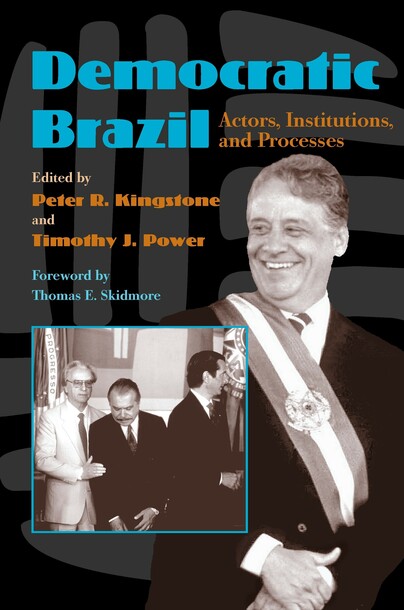
Format: Paperback
Pages: 360
ISBN: 9780822957140
Pub Date: 02 Mar 2000
Description:
After 21 years of military rule, Brazil returned to democracy in 1985. Over the past decade and a half, Brazilians in the Nova Rep\u00fablica (New Republic) have struggled with a range of diverse challenges that have tested the durability and quality of the young democracy. How well have they succeeded?
To what extent can we say that Brazilian democracy has consolidated? What actors, institutions, and processes have emerged as most salient over the past 15 years? Although Brazil is Latin America's largest country, the world's third largest democracy, and a country with a population and GNP larger than Yeltsin's Russia, more than a decade has passed since the last collaborative effort to examine regime change in Brazil, and no work in English has yet provided a comprehensive appraisal of Brazilian democracy in the period since 1985.Democratic Brazil analyzes Brazilian democracy in a comprehensive, systematic fashion, covering the full period of the New Republic from Presidents Sarney to Cardoso. Democratic Brazil brings together twelve top scholars, the \u201cnext generation of Brazilianists,\u201d with wide-ranging specialties including institutional analysis, state autonomy, federalism and decentralization, economic management and business-state relations, the military, the Catholic Church and the new religious pluralism, social movements, the left, regional integration, demographic change, and human rights and the rule of law. Each chapter focuses on a crucial process or actor in the New Republic, with emphasis on its relationship to democratic consolidation. The volume also contains a comprehensive bibliography on Brazilian politics and society since 1985. Prominent Brazilian historian Thomas Skidmore has contributed a foreword to the volume.Democratic Brazil speaks to a wide audience, including Brazilianists, Latin Americanists generally, students of comparative democratization, as well as specialists within the various thematic subfields represented by the contributors. Written in a clear, accessible style, the book is ideally suited for use in upper-level undergraduate courses and graduate seminars on Latin American politics and development.
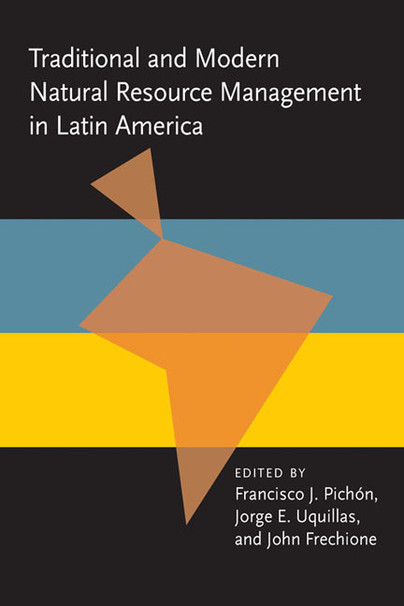
Format: Paperback
Pages: 344
ISBN: 9780822957034
Pub Date: 28 Oct 1999
Description:
This book identifies a major problem facing developing nations and the countries and sources that fund them: the lack of attention and/or effective strategies available to prevent farmers in underdeveloped and poorly endowed regions from sinking still deeper into poverty while avoiding further degradation of marginal environments. The contributors propose an alliance of scientific knowledge with native skill as the best way to proceed, arguing that folk systems can often provide effective management solutions that are not only locally effective, but which may have the potential for spatial diffusion. While this has been said before, the volume makes one of the best articulated statements of how to implement such an approach.
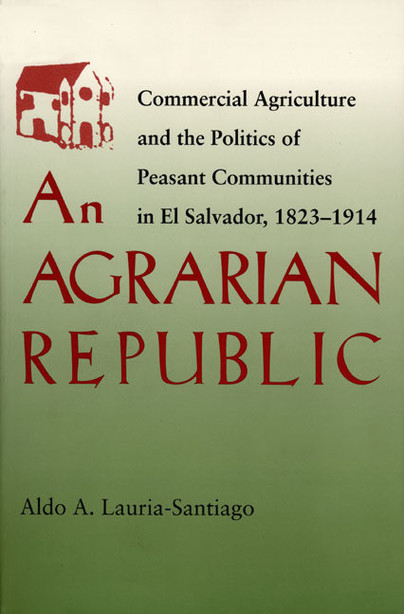
Format: Paperback
Pages: 336
ISBN: 9780822957003
Pub Date: 17 Jun 1999
Description:
With unprecedented use of local and national sources, Lauria-Santiago presents a more complex portrait of El Salvador than has ever been ventured before. Using thoroughly researched regional case studies, Lauria-Santiago uncovers an astonishing variety of patterns in land use, labor, and the organization of production. He finds a diverse, commercially active peasantry that was deeply involved with local and national networks of power.
An Agrarian Republic challenges the accepted vision of Central America in the nineteenth century and critiques the "liberal oligarchic hegemony" model of El Salvador. Detailed discussions of Ladino victories and successful Indian resistance give a perspective on Ladinization that does not rely on a polarized understanding of ethnic identity.
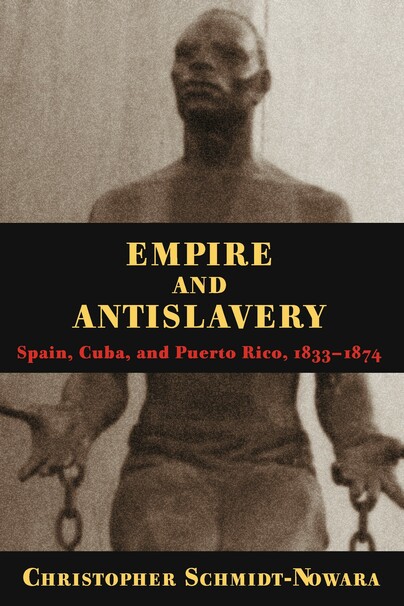
Format: Paperback
Pages: 256
ISBN: 9780822956907
Pub Date: 06 May 1999
Description:
In 1872, there were more than 300,000 slaves in Cuba and Puerto Rico. Though the Spanish government had passed a law for gradual abolition in 1870, slaveowners, particularly in Cuba, clung tenaciously to their slaves as unfree labor was at the core of the colonial economies. Nonetheless, people throughout the Spanish empire fought to abolish slavery, including the Antillean and Spanish liberals and republicans who founded the Spanish Abolitionist Society in 1865.
This book is an extensive study of the origins of the Abolitionist Society and its role in the destruction of Cuban and Puerto Rican slavery and the reshaping of colonial politics.
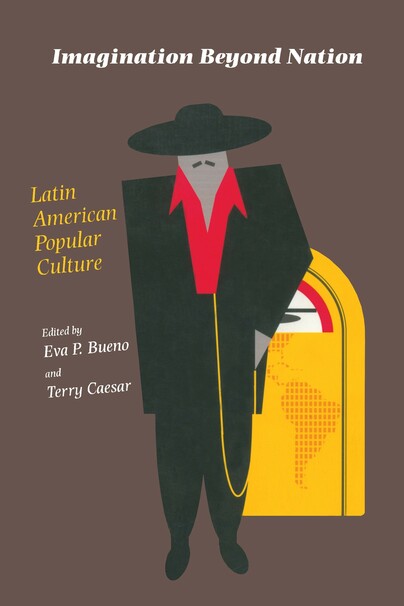
Format: Paperback
Pages: 328
ISBN: 9780822956860
Pub Date: 04 Mar 1999
Description:
Can scholarly pursuit of soap operas and folk art actually reveal a national imagination? This innovative collection features studies of iconography in Mexico, telenovelas in Venezuela, drama in Chile, cinema in Brazil, comic strips and tango in Argentina, and ceramics in Peru. In examining these popular arts, the scholars gathered here ask the same broad questions: what precisely is a national culture at the level of the popular?
The national idea in Latin America emerges from these pages as a problematic, divided one, worth sustained attention in the field of culture studies. Many different arts come forth in all their richness and vitality, compelling us to look, listen, and understand.
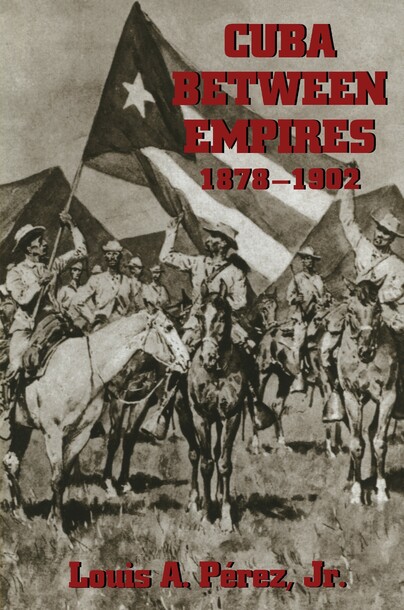
Format: Paperback
Pages: 512
ISBN: 9780822956877
Pub Date: 13 Aug 1998
Description:
Cuban independence arrived formally on May 20, 1902, with the raising of the Cuban flag in Havana - a properly orchestrated and orderly inauguration of the new republic. But something had gone awry. Republican reality fell far short of the separatist ideal.
In an unusually powerful book that will appeal to the general reader as well as to the specialist, Louis A. Perez, Jr., recounts the story of the critical years when Cuba won its independence from Spain only to fall in the American orbit.The last quarter of the nineteenth century found Cuba enmeshed in a complicated colonial environment, tied to the declining Spanish empire yet economically dependent on the newly ascendant United States. Rebellion against Spain had involved two generations of Cubans in major but fruitless wars. By careful examination of the social and economic changes occurring in Cuba, and of the political content of the separatist movement, the author argues that the successful insurrection of 1895-98 was not simply the last of the New World rebellions against European colonialism. It was the first of a genre that would become increasingly familiar in the twentieth century: a guerrilla war of national liberation aspiring to the transformation of society.The third player in the drama was the United States. For almost a century, the United States had pursuedthe acquistion of Cuba. Stepping in when Spain was defeated, the Americans occupied Cuba ostensibly to prepare it for independence but instead deliberately created institutions that restored the social hierarchy and guaranteed political and economic dependence. It was not the last time the U.S. intervention would thwart the Cuban revolutionary impulse.

Format: Paperback
Pages: 240
ISBN: 9780822956211
Pub Date: 15 Jul 1997
Description:
During much of the military regime in Brazil (1964-1985), an elaborate but illegal system of restrictions prevented the press from covering important news or criticizing the government. In this intriguing new book, Anne-Marie Smith investigates why the press acquiesced to this system, and why this state-administered system of restrictions was known as \u201cself-censorship.\u201d Smith argues that it was routine, rather than fear, that kept the lid on Brazil's press.
The banality of state censorship-a mundane, encompassing set of automatically repeated procedures that functioned much like any other state bureaucracy-seemed impossible to circumvent. While the press did not consider the censorship legitimate, they were never able to develop the resources to overcome censorship's burdensome routines.

Format: Paperback
Pages: 320
ISBN: 9780822955580
Pub Date: 26 Nov 1996
Description:
Voces Femeninas de Hispanoamerica presents in one volume a selection of the most representative and outstanding writing by Latin American women writers from the seventeenth century to the present. Designed as a text for third and fourth-year students, the selections, writers\u2019 biographies, historical introduction, and appendixes are entirely in Spanish, with notes to help students with difficult words or passages.

Format: Paperback
Pages: 332
ISBN: 9780822985402
Pub Date: 15 Jun 1992
Description:
Argentine Workers provides an insightful analysis of the complex combination of values and attitudes exhibited by workers in a heavily unionized, industrially developing country, while also ascertaining their political beliefs. By analyzing empirical data, Ranis describes what workers think about their unions, employers, private and foreign enterprise, the economy, the state, privatization, landowners, politics, the military, the \u201cdirty war\u201d and the \u201cdisappeared,\u201d the Montonero guerillas, the church, popular culture and leisure pursuits, and their personal lives and ambitions.
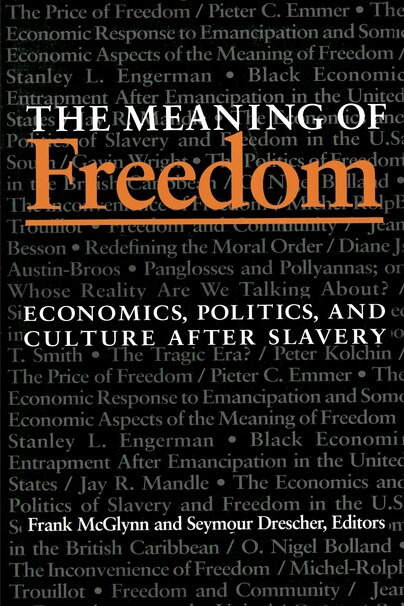
Format: Paperback
Pages: 352
ISBN: 9780822954798
Pub Date: 27 Apr 1992
Description:
In this interdisciplinary study, scholars consider the aftermath of slavery, focusing on Caribbean societies and the southern United States. What was the nature and impact of slave emancipation? Did the change in legal status conceal underlying continuities in American plantation societies?
Was there a common postemancipation pattern of economic development? How did emancipation affect the politics and culture of race and class? This comparative study addresses precisely these types of questions as it makes a significant contribution to a new a growing field.

Format: Paperback
Pages: 366
ISBN: 9780822985365
Pub Date: 15 Feb 1992
Description:
Brazil was one of the most successful examples of state-led industrialization in the post-1945 era. Yet, on the surface, the Brazilian bureaucracy appears highly fragmented, personalized, and ad-hoc. Ben Ross Schneider looks behind this fa\u00e7ade to explain how the Brazilian bureaucracy contributes to industrialization by analyzing career patterns and appointments which structure incentives and power more than formal organizations or institutions.
Politics and personalism, of the right sort, Schneider argues, can in fact enhance policy effectiveness and state capacity.
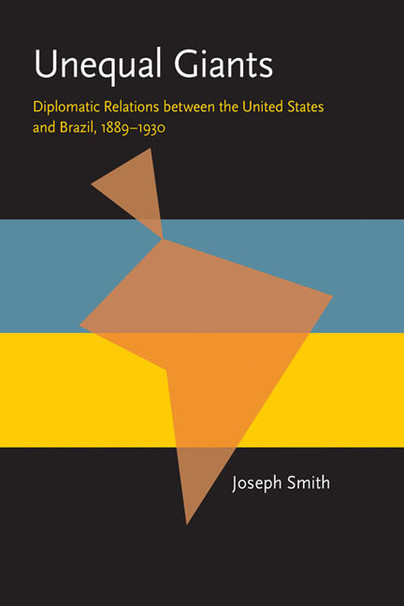
Format: Paperback
Pages: 308
ISBN: 9780822985303
Pub Date: 15 Sep 1991
Description:
In 1889 the Brazilian empire was overthrown in a military coup. The goodwill and assistance of the United States to the young republic of Brazil helped forge an alliance. But America's apparently irresistible political and economic advances into Brazil were also hampered by disagreements-over naval armaments, reciprocity arrangements, the issue of coffee valorization, and in the 1920s over Brazil's efforts to play an active role in the League of Nations at Geneva.
The relationship proved to be unequal, with the United States gaining influence in Latin America, as the Brazilian elite's ambitions and vanities were fed.

Format: Paperback
Pages: 432
ISBN: 9780822954460
Pub Date: 15 Mar 1991
Description:
• Choice 1987 Outstanding Academic Book This book examines the early years of the Cuban Republic, launched in 1902 after the war with Spain. Although no longer a colony, the country was still hobbled by continuing dependence on and exploitation from a foreign power. P\u00e9rez shows how U.
S. armed intervention in Cuba in 1898 and subsequent military occupation revitalized elements of the colonial system that would serve imperialist interests during independence. The concessions of the Platt Amendment in 1903 became the principal instrument for U.S. expansion in Cuba. The U.S. then gained control over resources and markets.

Format: Paperback
Pages: 292
ISBN: 9780822985242
Pub Date: 15 Nov 1990
Description:
Winner of the Arthur P. Whitaker Prize as \u201cthe best book in Latin American Studies in 1990-1991Mexico's colonial experience had left a bitter legacy. Many believed that only the physical removal of the old colonial elite could allow the creation of a new political and economic order.
While expulsion seemed to provide the answer, the expulsion decrees met stiff resistance and caused a tug-of-war between enforcement and evasion that went on for years. Friendship, family influence, intrigue, and bribery all played a role in determining who left and who stayed. After years of struggle, the movement died down, but not until three-quarters of Mexico's peninsulares had been forced to leave. Expulsion had the effect of crippling a once flourishing economy, with the flight of significant capital.
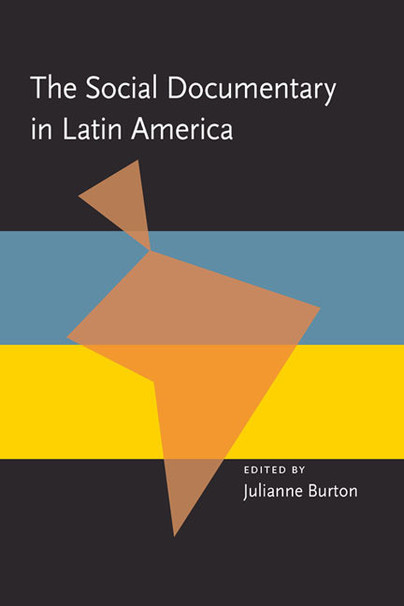
Format: Paperback
Pages: 474
ISBN: 9780822954194
Pub Date: 15 Sep 1990
Description:
Twenty essays by major filmmakers and critics provide the first survey of the evolution of documentary film in Latin America. While acknowledging the political and historical weight of the documentary, the contributors are also concerned with the aesthetic dimensions of the medium and how Latin American practitioners have defined the boundaries of the form.
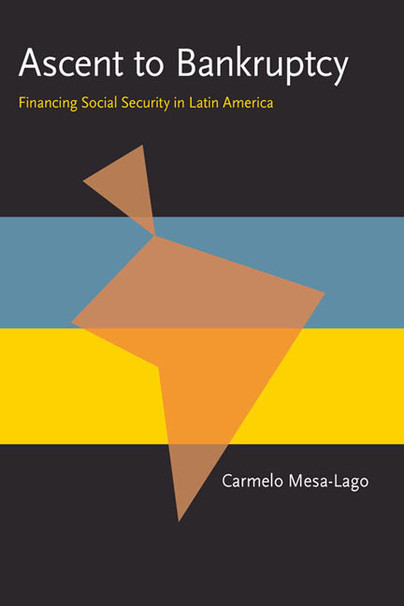
Format: Paperback
Pages: 312
ISBN: 9780822985129
Pub Date: 15 May 1990
Description:
In 1990, Carmelo Mesa-Lago, the foremost authority on social security in Latin America, concluded that all of the region's programs were imperiled, especially those in the most advanced nations. His study of twenty countries, originally sponsored by the United Nations Economic Commission for Latin America, critically reviews major financial problems, low and uneven population coverage, erosion in benefits, increasing costs, and the impact of social security on development.In words that eerily echo current U.
S. debates, Mesa-Lago analyzes virtually all social insurance programs: old age, disability and survivors' pensions; health care; occupational hazards; family allowances; and unemployment. For social security specialists, this impressive study will serve as a comprehensive regional handbook on the legal, administrative, and financial features of Latin America's programs. Students of comparative policy and applied economics will find Mesa-Lago's methodology, analytical framework, and policy recommendations invaluable.
















